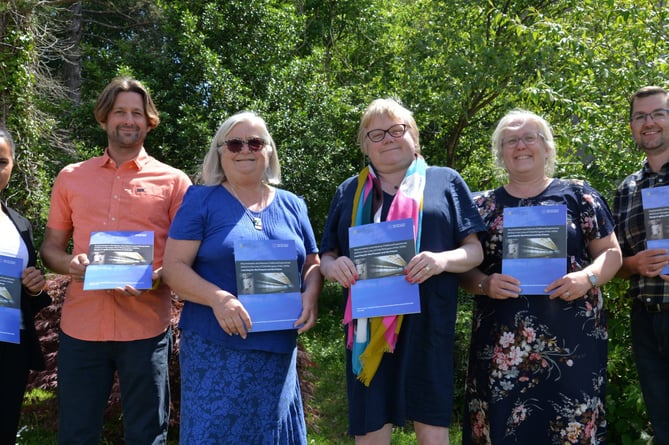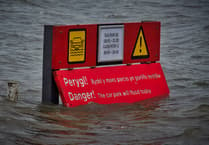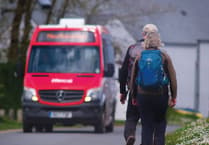SUPPORT for today’s young sanctuary seekers should be informed by the experiences of child refugees who fled National Socialist Central Europe in the 1930s, according to a new report by researchers at Aberystwyth University.
The report, Discrimination and Adverse Childhood Experiences (ACEs) in the Lives of Child Refugees of the 1930s: Learning for the Present and the Future, launched by the Centre for the Movement of People to coincide with Refugee Week 2022, is the second part of a research project which explores oral histories from people who escaped the threats of the National Socialist dictatorship and the Holocaust as children.
Researchers Anita H Grosz, Dr Stephanie Homer and Dr Andrea Hammel used testimonies from people who sought sanctuary in the UK as children and settled here permanently after the Second World War.
Their experiences provided an opportunity to look at the long-term consequences of what happened to them as children, and in particular to investigate the impacts of the racism, anti-Semitism, xenophobia and discrimination they encountered.
The report suggests ways to minimise exclusion and discrimination based on race, religion, and refugee status, and proposes ways to improve inclusion.
Project lead Dr Andrea Hammel said: “A great many lessons can be learned from the testimonies we examined.
“For example, we know that the overwhelming desire to ‘assimilate’ child refugees in the 1930s had negative consequences for their sense of identity and belonging.
“Therefore, it is vital that the cultural, religious, and linguistic experiences of today’s refugees coming from diverse countries such as the Ukraine, Afghanistan and Syria is respected.
“Adults and children in schools and communities need to be prepared for the political complexity of the child refugee’s background, educated about their culture, and have an understanding of what they may have encountered in their originating countries and during their forced migration.
“Equally important is making both adults and children aware of how to avoid and call out discrimination, bullying behaviour, verbal abuse, and the use of racist and discriminatory language.
“Refugee organisations should ensure there is some sort of local community consisting of other refugees or people who originated from the same country, speak the same language, or are of the same religion.”
The project was funded by the Adverse Childhood Experiences Support Hub, Public Health Wales.
Jo Hopkins, programme director for Adverse Childhood Experiences (ACEs) at Public Health Wales said: “Today, our news headlines are about refugees fleeing the crisis in Ukraine.
“This report is therefore timely, in particular its recommendations of how we, as a host country, can best accommodate refugees, minimise discrimination, and improve inclusion and acceptance of individuals who have been forced to flee their home countries.”




